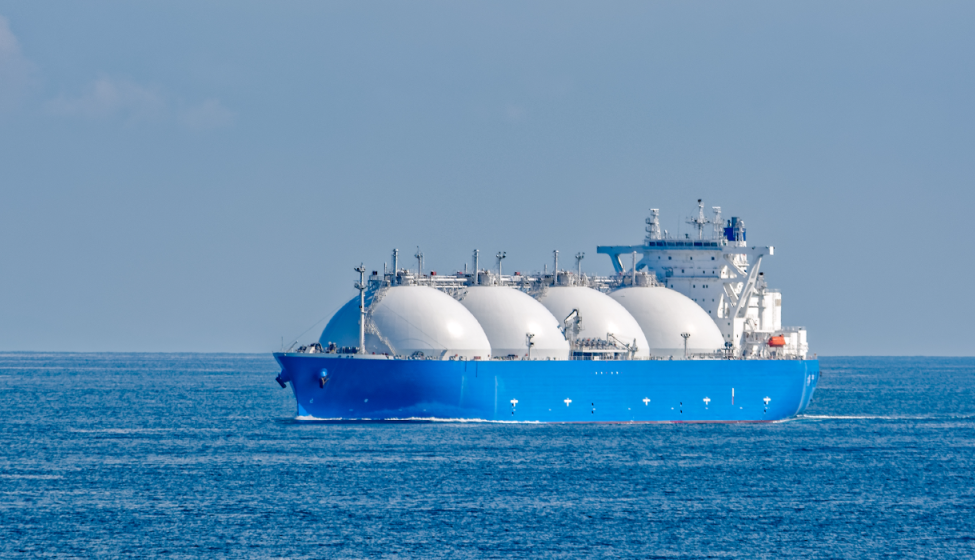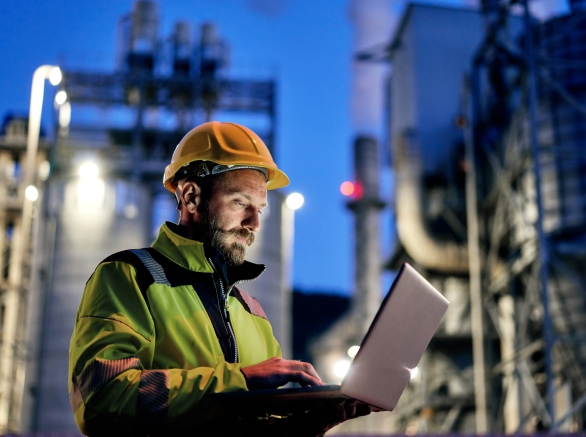December 1, 2021
Recent deal signals growing commitment to shipping liquefied hydrogen globally
Shipping natural gas across oceans in the form of liquefied natural gas (LNG) has opened new markets, bringing together natural gas producers and users on a global scale. Now, companies are also looking to ship hydrogen globally, but while shipping LNG is an established commercial process, shipping liquefied hydrogen (LH2) is not.
Recently, Samsung Heavy Industries and Lloyds Register signed an Approval in Principle for a 160,000 m3 (or 1,100 t) LH2 carrier based on a membrane cargo containment system (CCS). The contemplated LH2 carrier design is over one hundred times larger than the world's first LH2 carrier SUISO FRONTIER (1,250 m3 capacity), which was only delivered in March 2021. This would also be the first time a membrane CCS has been used for LH2. To date, it has primarily been transported in vacuum-insulated double-shell containment structures.
This Approval in Principle signals a growing commitment in the shipping industry to developing a dedicated global supply chain for LH2.
New liquefaction and receiving terminals will need to be permitted and constructed, since LH2 needs to be stored at even lower temperatures than LNG, and it is still being debated whether equipment for LNG liquefaction and storage can be readily repurposed for hydrogen.
Demand for hydrogen as an alternative energy source will continue to grow as countries commit themselves to reducing greenhouse gas (GHG) emissions. Companies looking to install systems for liquefaction, storage, transfer, and transport of LH2 will need to consider the risks of handling cryogenic liquefied flammable gases and the unique hazards posed by hydrogen including material embrittlement, increased ignition sensitivity and flammability range, greater propensity to detonation, and even colder storage temperatures.
How Exponent Can Help
Exponent's multidisciplinary team of metallurgists, thermal and polymer scientists, and electrochemical, chemical, mechanical, and electrical engineers can help firms assess the safety, sustainability, and efficacy of hydrogen technologies. Our services that can help clients prepare for the future hydrogen economy include:
- Helping clients understand the opportunities and challenges associated with LH2 production, transportation, and end use.
- Helping clients determine the potential reductions in GHG emissions attainable by converting current products and processes at their own facility or within their supply chain and the product life cycle from fossil fuels to hydrogen.
- Risk assessment for LH2 operation and transition from LNG to LH2.
- Thermal and structural analysis for LH2 membrane cargo containment systems.
- Incident investigation and root-cause analysis for hydrogen fires/explosions.
Exponent's sustainability consulting can assist companies with a majority of the 17 UN Sustainable Development Goals, including a focus on GHG emissions, water conservation, and sustainable packaging and plastics for a circular economy. Exponent's material scientists, chemists, and chemical, mechanical, electrical, and electrochemical engineers also have experience evaluating performance metrics in the event of contractual disputes and reviewing intellectual property for these systems in cases where infringement has been alleged.





